ButhoTheWarrior is Glasgow’s Afro-house ambassador

Ahead of his legendary Afro-house night, Jaiva, we caught up with the Zimbabwe-born DJ and Glasgow stalwart to hear his seven career-defining tracks.
In partnership with Ballantine’s
Words: Nicole Ndlovu
Photography: Charlotte Cullen
No ButhoTheWarrior, no party! Yep, from 2018 to now, the Zimbabwean DJ has introduced the people of Glasgow to southern Africa’s worst kept secret: Afro-house. The genre has been steadily gaining international recognition, bolstered – in part – by the rise of South Africa’s sweetheart, Tyla, whose signature blend of amapiano and bacardi has propelled the infectious sound to the world.
Holding the fort in Scotland, ButhoTheWarrior (birth name Ngqabutho Mpofu) and his cocktail of jazz, disco and, of course, Afro-house, has quickly garnered attention, racking up festival appearances and residencies in local community radio stations, like Clyde Built Radio and Radio Buena Vida.
On the morning before his legendary clubnight, Jaiva, he joins us in Glasgow’s South Side. It’s 9am, and we’re sitting in Cafe Buena Vida, three hours before its official opening time. He’s trekked over from Glasgow’s West End to speak. “I’m often in bed at this time,” he says. Sorry, Butho! “But I got to see the neighbourhood in a different manner.”
ButhoTheWarrior hails from the city of Bulawayo, which is widely deemed Zimbabwe’s cultural hub. Lucky to live opposite one of the city’s many legally regulated cocktail bars in the township of Luveve, he was exposed to the music of African music legends Oliver Mtukudzi and Brenda Fassie, who could be heard through windows.
Variations of music could be heard around his house, too. Whether it was his grandma preparing for her choir classes, aunties listening to the newest R&B tracks or his uncle enjoying dub and reggae outside, music was always bringing his community together. “I grew up around a lot of music and to be honest, nothing European,” he says. “I’m only starting to discover rock music.”

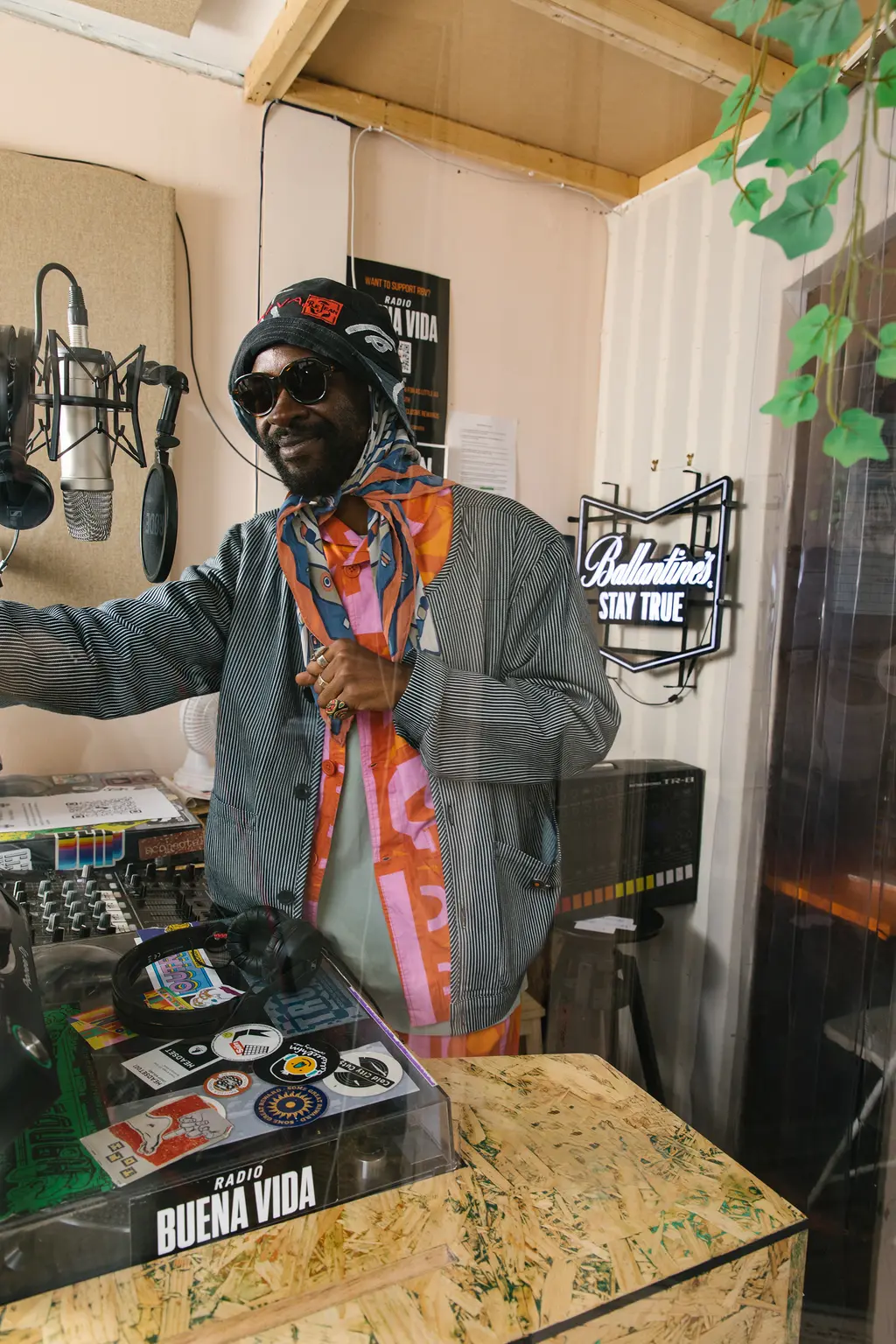
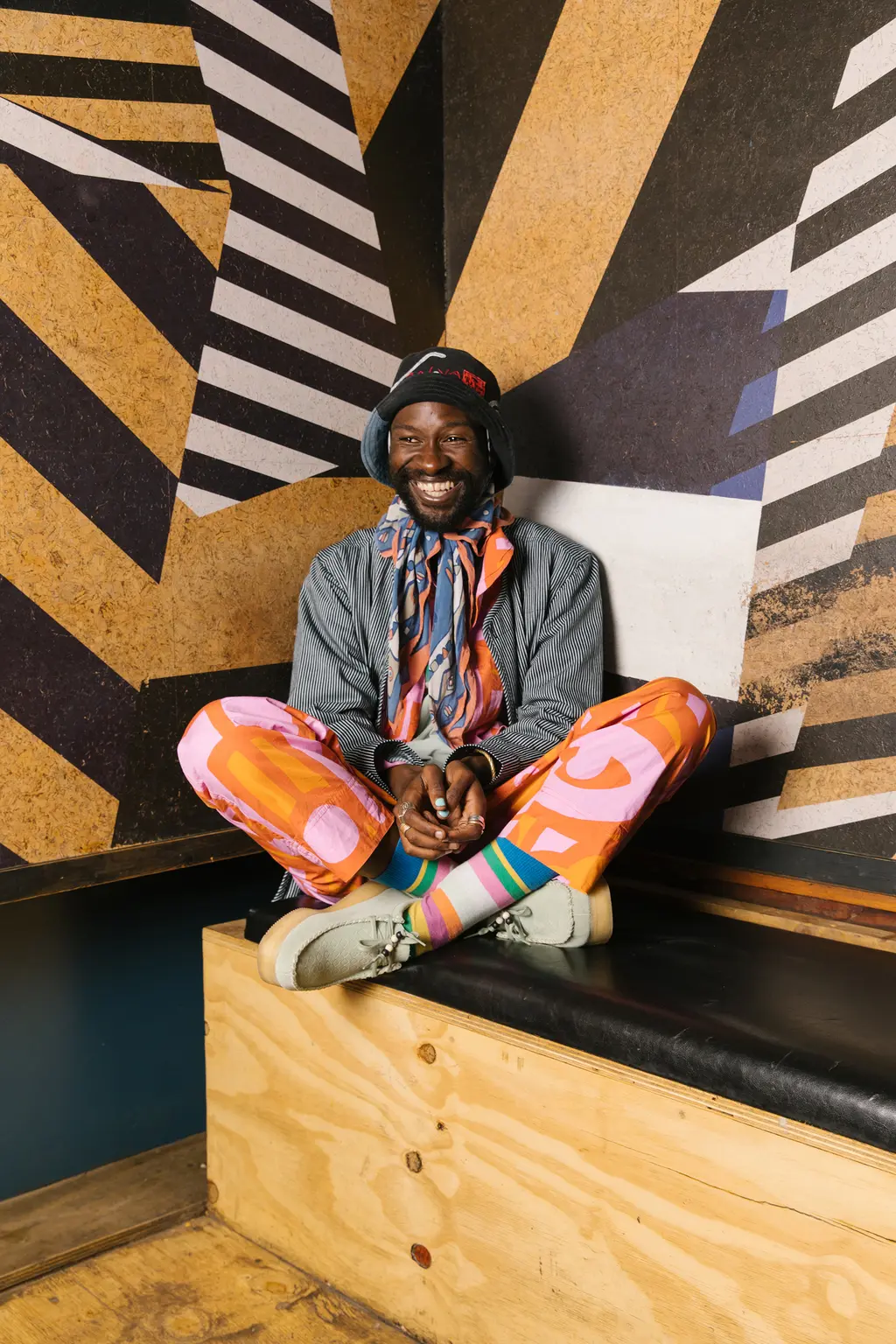
Initially, ButhoTheWarrior moved to Glasgow before relocating to Somerset, where he first discovered his love for electronic music. He’s been back in Glasgow since 2018, when he started Jaiva. How did it come about? “Mainly out of protesting really, wanting to provide something different for Glasgow.”
Following the 2015 death of Mickey Ferrari, a promoter pivotal in putting Glasgow on the map for Black international grime and R&B acts – think So Solid Crew’s MC Romeo, Nigerian singer-songwriter Iyanya and many more – the diversity at events had drastically declined, explains ButhoTheWarrior.
Jaiva was also conceived in response to ButhoTheWarrior’s frustration of not being able to travel outside of the UK due to his passport. For many other artists, passport and visa issues have prevented them from playing internationally, as well. Still, two years deep into his party, Covid-19 forced the world into a lockdown. Surprisingly, this is when Jaiva gained attention through its livestreams and radio station shows.
It wasn’t long until Jaiva found its home in one of Glasgow’s most famous dance music venues, Sub Club. Spurred on by the bravery of Black artists globally speaking out against their mistreatments in the creative industries and how racial bias affects their profession, ButhoTheWarrior decided to make positive change. One such action involved addressing Sub Club’s bookings. He contacted the club directly. “I told them that they needed to have a Black resident in there. It ended up being a big meeting, which was really progressive and hard but resulted in me having this residency.”
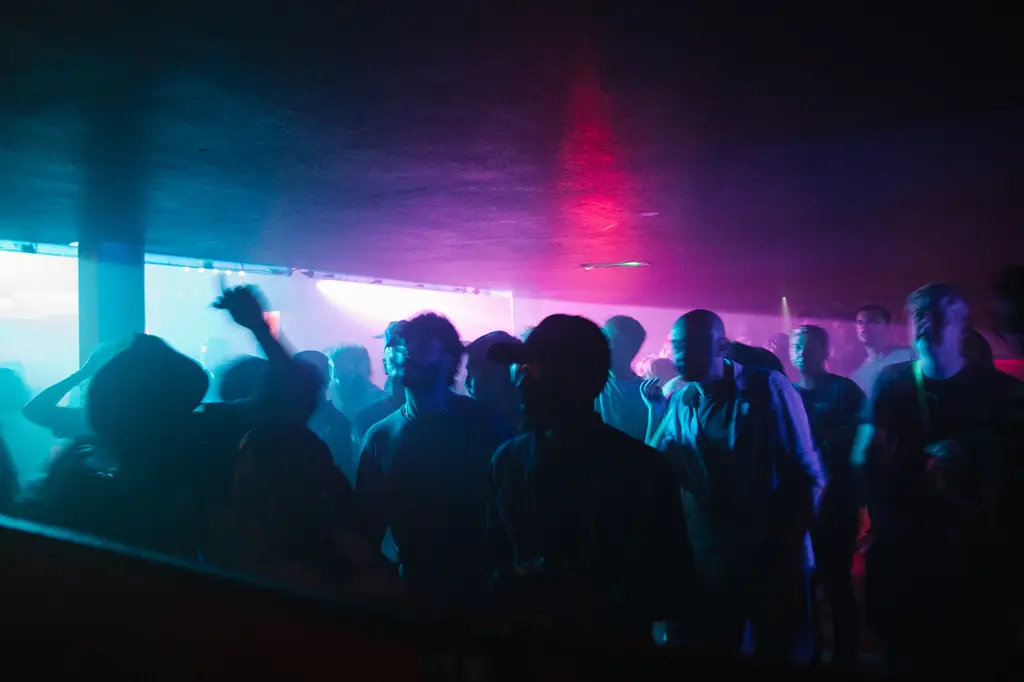
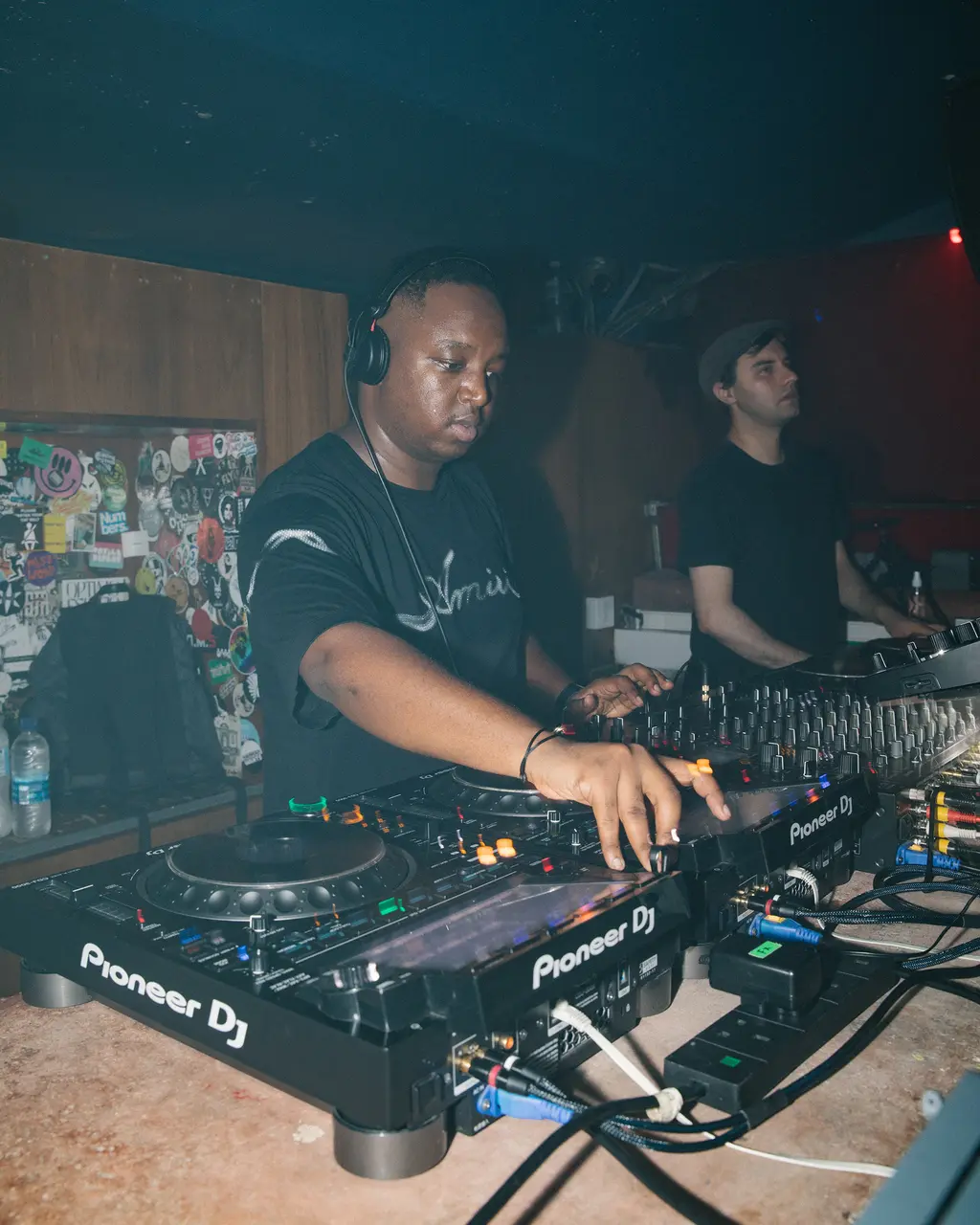
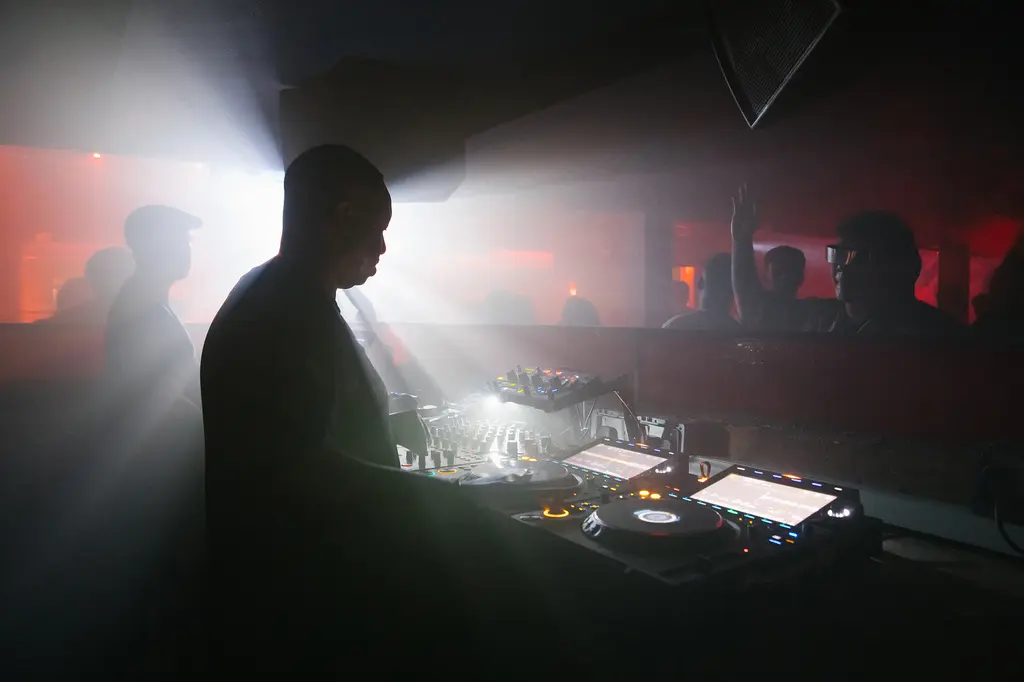
This year, Jaiva has partnered with Ballantine’s True Music, using the platform to host a new wave of southern African DJs – not least Shimza – forming a bridge between Scottish and African nightlife. If anything, Glasgow is the best place for it. After all, where else will you find a room of people busting Afro-house footwork to the city’s infamous chant, “Here we, here we…”
Here, we talk through the musical journey and tracks that made ButhoTheWarrior the DJ and nightlife connoisseur he is.
Lovely to meet you, Butho! What is the song that got you interested in DJing?
It would have to be a house track. I would probably say Summer Daze by Nick Holder. Summer Daze is like one of the [staples] of Afro house. It’s just a good, sampled old jazz tune turned into house.
How did you discover it?
It might have been in one of Black Coffee’s early sets when he used to do a monthly “Appreciation Mix”. It’s such an old tune, it’s almost like a national anthem for deep house lovers. I could recognize the vocals and I [wondered], “Where do I know this tune from?” And then years later when I was vinyl digging, I found the record – and, oh, my God, the satisfaction…
What’s a song that you heard around the house growing up?
I’m a product of the apartheid in Zimbabwe. People got separated and would be kind of in and out, but not because they wanted to be, politically things were hard. This song hit the spot whenever someone was going away or coming back home.
What’s your favourite music genre?
I’ve always liked reggae and dub because it was kind of like that childhood thing of seeing your grandfather [sitting] underneath a tree, listening to dub and smoking a cigarette, and you’re in awe thinking, “Wow, this is so cool.”
When I bought my first car, I picked up my mum and we were driving in the Somerset countryside. The first thing I played for her was a track off one of Black Coffee’s first albums, Mama. It starts by saying, “Ndiyabulela [Thank you], Mama”.
So, what’s the song that you think best represents the crossover between Zimbabwean culture and South African culture?
Dorothy Masuka has a song called Mzilikazi. Mzilikazi is like the oldest resettlement neighbourhood in Zimbabwe. Dorothy got signed to Gallo Records, which was the biggest label in Africa at the time, but I don’t think she’s ever been credited for being a Zimbabwean.
I sometimes use Mzilikazi to open up my sets. It’s just got this spiritual, jazzy vibe. It’s really deep, and it’s just paying homage to her because of how much the music related.
Why do you think Dorothy Masuka was never credited for being a Zimbabwean?
I think as people we have always been shy to say we are Zimbabwean. I don’t know… I wasn’t there at that time, but she probably sold more records by saying that she was South African, politically.
When it comes to you being from Zimbabwe but DJing in Glasgow, has there ever been a moment where you’ve had to intentionally stay true to your sound?
I’ve never felt like I’ve had to in Glasgow, and I refuse to do it anyways because this is my identity. I play Afrobeat, Afro house, African electronic music, and it’s what I listen to.
When you walk into a room, it’s up to you if you want to influence the room or be influenced. I chose to influence Glasgow instead of Glasgow influencing me when I moved here.
What’s the song that reminds you of the first time you played in Glasgow?
I don’t even know what I played that night because it was such an out of body experience. That was the night I decided to become a DJ full time because people were asking after like, “Oh, what was that tune?”
Can we find this set online?
It’s definitely not online – well, I don’t think it is! A very good friend of mine called me saying, “If you really wanna stay in this business, you better remove that mix.” That set actually is online because I want to learn in front of people. I don’t have a problem with people finding this mix. I told my friend I’m not chasing perfectionism. I think it’s worked to my advantage because there are people who watched me from the first gig to now and they see the difference.
Sick! What is this song that you think best represents Glasgow’s clubbing scene?
Kerri Chandler’s song Subbie [Sub Club]. It samples the ballroom next door. There’s a woman who speaks in a Bingo voice, and he sampled that as well as the train tracks that are above Sub Club. I missed the session when he actually recorded it in the club. But it’s just Glasgow in and out.
Is there a song that you’re testing out for the first time tonight?
Caiiro’s new album is out and I’m gonna try out two tunes that I think work perfectly in the club. Son of Mar is so progressive and it just keeps on building up and up.
I always carry records that I’ve listened to earlier on in the week to play during the last hour of the [night]. Anything goes during this last hour. We’ve all danced hard to this electronic music – let’s listen to something totally different. I get people coming to Jaiva just for that last hour.
Is there a song you always need to have in your sets?
There’s a song called Tribute to Zimbabwe that I found on Soundcloud and it only had about 19 plays. It’s like a tribute to my hometown, progressive deep house that just keeps on going.
I rarely repeat songs because at times you end up chasing a reaction. There’s so much music at the moment, and I don’t think we are appreciating it enough.
What is the song that you think is the future of your music?
Everything I’m making now. I think in terms of house and jazz music, Black southern African people are making it cool again, and I just happened to be in the middle of it. I always say I think I’m the missing link in the music industry. I try not to feel bad for saying it because we’ve been taught to feel ashamed or shy. There’s no time to self doubt when you’re in the creative industry.






